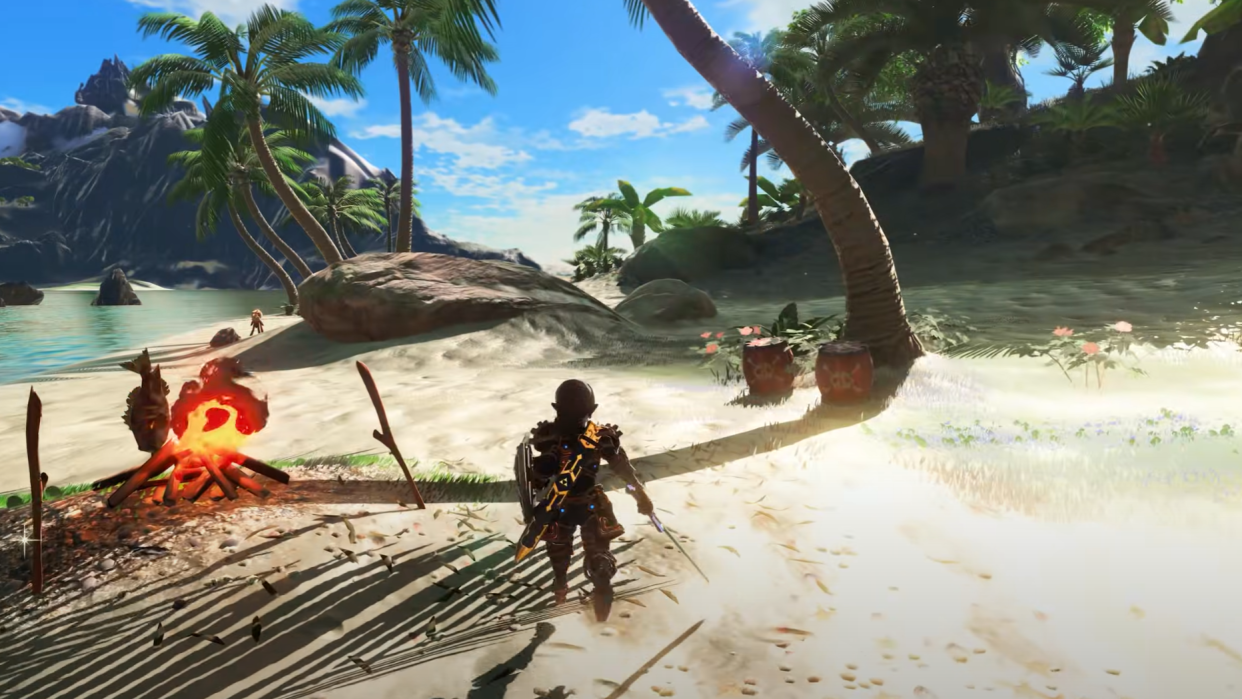Notoriously litigious Nintendo sues maker of Yuzu Switch emulator, alleges it facilitates ‘piracy at a colossal scale’

Nintendo is suing the developers of the Yuzu Switch emulator, citing the fact that Legend of Zelda: Tears of the Kingdom was leaked prior to release and downloaded one million times, according to a legal document shared by Stephen Totilo on Twitter. The lawsuit lists "Tropic Haze LLC," the company who operates Yuzu and its Patreon page.
While Nintendo points toward the one million number as some kind of irreparable harm, it's important to note that Tears of the Kingdom still sold 20.28 million copies by the end of 2023. In the same span of time (about 7 months after launch), Breath of the Wild sold about 16 million copies on Switch. As always, equating every pirated download to a lost sale is something of a logical fallacy.
With this attack from Nintendo on the emulation and game preservation community, several questions have started to pop up. This isn't the first time Nintendo has taken action against an emulator — when Valve went out of its way to ask Nintendo if the Dolphin GameCube/Wii emulator should be allowed on Steam in May 2023, Nintendo quickly struck down the idea.
Nintendo may have been correct to do that, because while Dolphin still exists and Nintendo hasn't taken more direct action against it since, it seems that Dolphin's method of playing games requires a Nintendo cryptographic key to be built-in. Even former Dolphin dev Delroth stated in a Mastodon thread that Dolphin's distribution of the Wii's AES-128 Common Key might violate anti-circumvention provisions of the DMCA — though over a half-year later, no action has been taken on Dolphin outside of prevention of the Steam listing.
Nintendo has yet to take Dolphin to court, but that doesn't mean that it and other emulators won't be impacted by the upcoming Nintendo v. Tropic Haze LLC (Yuzu) court case.
From Nintendo's view, emulation has never been, and never will be, legal. Even if you legally purchased the game and painstakingly created an archival copy with your own console, Nintendo argues in this lawsuit, "Any copy [...] not on an authorized cartridge or console is an unauthorized copy and therefore infringing. [...] Nintendo has the right to decide whether or when to enter the market of games for platforms other than its own console."
Make no mistake: there is legal precedent that exists which defends emulators in their current state. The Gaming Historian's coverage of Sony's (unsuccessful) court cases against emulators is a good way to get caught up on the legal precedent here up to 2017. This is the first time in a while that an emulator has been taken to court, and it could very well set new legal precedent that puts the entire emulation scene at risk.
Speaking to Ars Technica, Attorney Jon Loiterman stated, "Nintendo wants to say that the license agreement for all users restricts their use of the game to only run on the Switch. That's problematic because the 37 CFR § 201 includes a number of exceptions and limitations on how far-reaching and applicable licensing terms like that can be."
Loss of Switch emulation as an option for legitimate owners could also mean a future of Nintendo gaming that is always firmly locked to whatever... let's call it "high-value" console hardware it has chosen to ship that generation. The Switch has operated since 2017 using the Nvidia Tegra X1 chipset that debuted in 2015, made for mobile devices and the Nvidia Shield.
While some truly impressive ports have been possible on the Switch hardware, some truly horrendous ones with sub-30 fps and sub-540p resolutions have been seen in action. And even some of Nintendo's most ambitious games — especially those in the Zelda series — struggle to run at a stable 30 fps on its own hardware, much less at a high resolution.
In any case, it looks like Nintendo doesn't care about legitimate users of emulation, and is hoping to use this court case to acquire enough evidence in discovery to prove that Yuzu is knowingly aiding and abetting piracy, despite advising users to extract keys from games they legally own from their own consoles.
With rumors of a more powerful Switch 2 right around the corner and Yuzu already able to emulate nearly the entire library, this move seems to border on spite, but could serve as a pre-emptive defense against the next generation of Nintendo emulation. That said, the open-source Ryujinx Switch emulator is currently unaffected, and Nintendo has yet to successfully change precedent in such a way that stops people from emulating the Switch today.
Even if the takedown is successful, the cat is long "out of the bag" when it comes to emulating the Switch and its library. That software is always going to be in circulation now, no matter what Nintendo does. However, the potential for this case to set new legal precedent could have a chilling effect on all future Nintendo emulation development, and perhaps give Nintendo ammunition to come after emulation as a whole — not just Yuzu.

